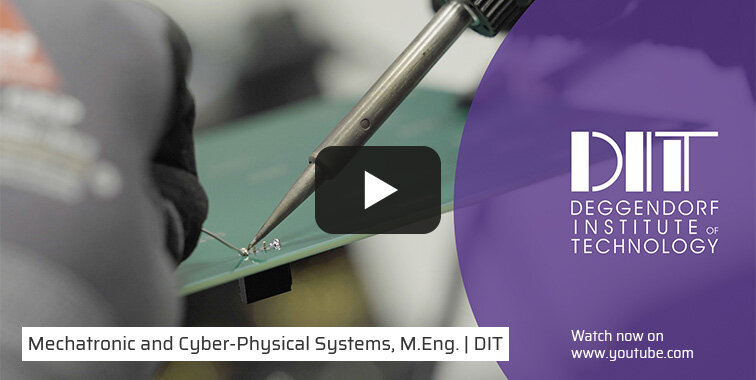the desire to discover new things
shape the future
We provide support for internships, starting a job in a company, or setting up your own business

you shape the future
The consecutive Master's programme enables Bachelor's graduates in mechatronics and other related fields of study to deepen their knowledge and understanding of networked systems in digital production. Modern simulation systems, cooperative and autonomous systems, innovative Human Machine Interfaces and additive manufacturing processes are dealt with in four technologically oriented study units. Two interdisciplinary study units allow the treatment of specific application fields of cyber-physical systems as well as the topic of functional safety of software-based control and automation systems.
Learn more: Presentation video of the study program from the Master Info Evening
All the important information at a glance: Take a look at this brief introduction to the master's program in Mechatronic and Cyber-Physical Systems.
fact sheet mechatronic and cyber-physical systems
Degree: Master of Engineering (M.Eng.)
Duration: 3 semesters (18 months)
ECTS points: 90
Start: October (winter semester)
Location: Deggendorf
Taught in: English
Application period: 15 April - 15 June
Admission requirements:
- The qualification for the master's programme "Mechatronic and Cyber-Physical Systems" is proven by the completion of a basic course of study at a domestic or foreign university with a minimum of 210 ECTS credits in the fields of industrial engineering, technical physics, mechanical engineering, electrical engineering, mechatronics or a degree that is equivalent to such a university degree. Based on the documents submitted, the examination board decides on the equivalence of prior degrees.
- For this reason, applicants having obtained their academic training (e.g., undergraduate degree) in non-member states of the Lisbon convention are recommended to submit a GATE or GRE (general) certificate deemed to further substantiate their eligibility for this study programme.
- Additionally, the professional qualification for this study programme is to be demonstrated in the context of an aptitude assessment. This written exam is based on a range of subject areas relevant for the field of Mechatronics, such as mathematics, physics, electronics & electrical engineering, system theory, control engineering and computer science. The exam is being conducted both online and on-site at the Faculty Mechanical Engineering and Mechatronics to the Deggendorf Institute of Technology. This exam is consulted to determine the major-specific eligibility and ultimately decides on the admission to this master’s programme.
Concerning all applications for the winter semester on Campus Deggendorf:
- For all applications received from 15th April to 15th June, the online admission test is scheduled shortly upon the end of the application period.
- The date of the online admission test cannot be chosen individually. Instead, the test date will be pre-defined by the examination board within the invitation email.
- Dependent on the date we received your application, applicants will either receive their invitation email in the middle or by the end of the application period.
Language requirements
- If English is not the native language, certified knowledge of the English language must be provided. See language requirements.
- If German is not the native language, certified knowledge of the German language must be provided. See language requirements.
- Admission is defined in the study and examination regulations (§3 Qualification for the degree programme, § 4 Proof of missing ECTS points, § 5 Proof of degree programme-specific aptitude).
CHE University Ranking 2021/2022: The Faculty of Mechanical Engineering and Mechatronics is in the top group in the area of "Practical Relevance".
Fees:
- No tuition fees, only student union fee
- International students from non-EU/EEA countries are required to pay service fees for each semester. Click here to read about our service fees.
Enquiries: welcome@th-deg.de | prospective student advisors
career prospects
In the near future, intelligent, self-controlling, sensor-supported and networked production systems will enable almost self-organized production in the "Smart Factory". In addition to this Industrial Internet of Things (IOT), robots on the other side of the spectrum are even gradually beginning to conquer social areas: Many surgical procedures are already robot-assisted today, and even in the care sector, attempts are being made to make measures technically more effective or to replace missing skilled personnel with robots. The field of automation, digitization and robotics has an enormous Bandwidth, and development is progressing at breath-taking speed.
What influence will megatopics such as virtual/augmented reality, autonomous driving or ambient assisted living have on our future lives? The demand for qualified personnel will increase continuously over the next few years. Expert knowledge is more in demand than ever. Creative ideas can be the answer to these questions and needs - as master mechatronic and cyber-physical systems.
Increasing digitaliSation is changing the way we work and creating new professions. The Master's programme in Mechatronic and Cyber-physical Systems conveys exactly the knowledge that is needed to be not only a part of this changing professional world, but someone who is actively involved in shaping it.
subject overview
Overview of courses and lectures, SWS (Semesterwochenstunden = weekly hours/semester) and ECTS (European Credit Transfer and Accumulation System) in the Master's degree Mechatronic Cyber-Physical Systems.
| 1. Semester | SWS | ECTS |
| Cyber-Physical Systems | 6 | 5 |
| Advanced Robotics | 4 | 5 |
| Autonomous Systems | 4 | 5 |
| Case Study Cooperative and Autonomous Systems | 4 | 5 |
| Advanced Modelling and Simulation | 4 | 5 |
| Case Study Mechatronic System Simulation | 4 | 5 |
| 2. Semester | SWS | ECTS |
| Human Machine Interfaces - VR/AR | 4 | 5 |
| Case Study VR/AR in System Engineering | 4 | 5 |
| Technologies of Additive Manufacturing | 4 | 5 |
| AM Production Processes | 4 | 5 |
| Case Study Cyber-Physical Production Systems Using AM | 4 | 5 |
| Functional Safety - Principles and Design | 4 | 5 |
| 3. Semester | SWS | ECTS |
| Subject-Related Elective Course (FWP) | 4 | 5 |
| Master's Module | - | 25 |
| Master's Thesis | - | 20 |
| Master's Seminar ((two parts: Master colloquium (2 ECTS) and seminar series "Career Start into German Technology Companies")) | 2 | 5 |




